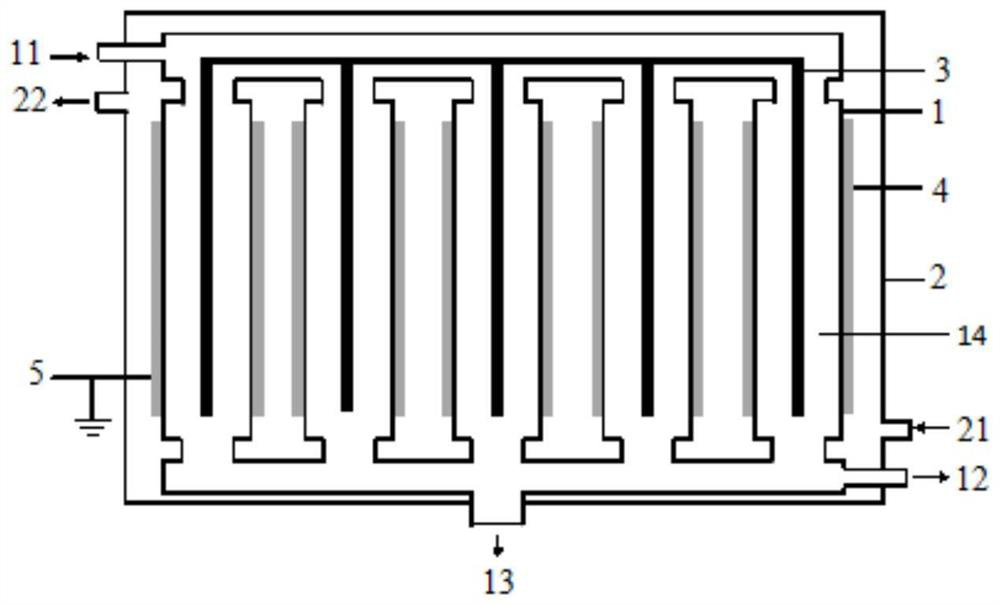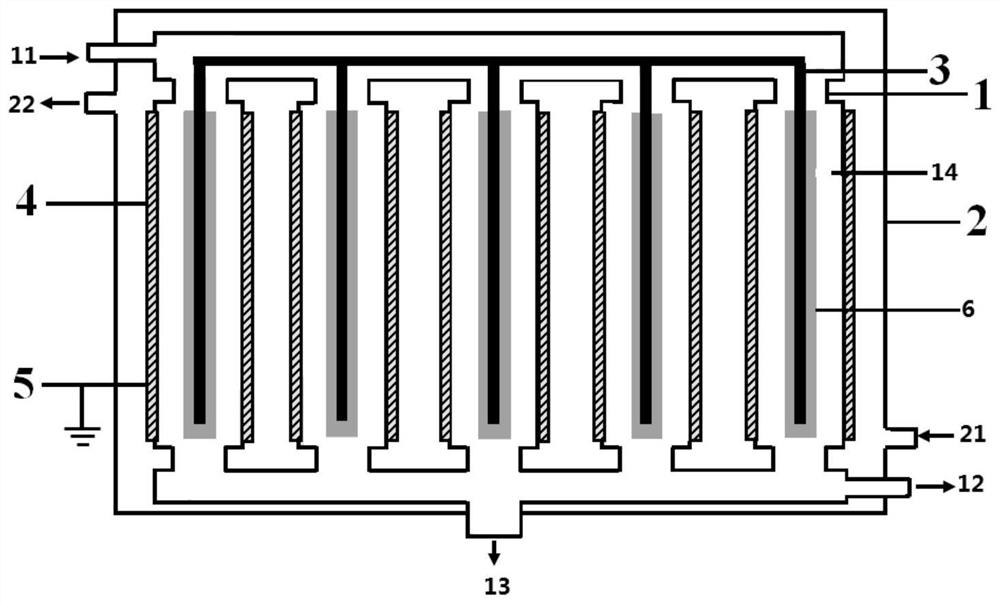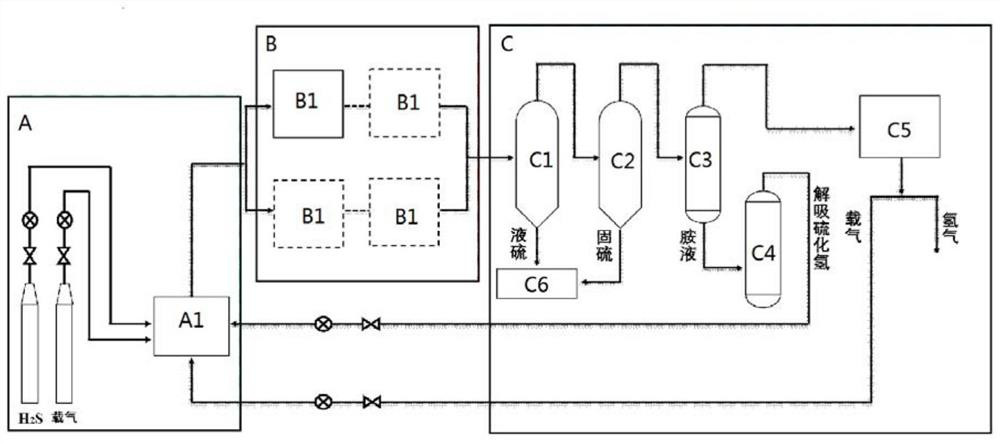Method of plasma decomposing hydrogen sulfide
A technology of plasma and hydrogen sulfide, applied in the field of plasma chemistry, can solve the problems of low conversion rate of hydrogen sulfide and high energy consumption of decomposition
- Summary
- Abstract
- Description
- Claims
- Application Information
AI Technical Summary
Problems solved by technology
Method used
Image
Examples
specific Embodiment approach
[0088] Nitrogen gas was introduced into the inner barrel of the plasma reactor from the reactor inlet to purge air in the discharge area, and the gas was drawn from the product outlet. At the same time, the heat-conducting medium is introduced into the outer cylinder from the heat-conducting medium inlet, and the introduced heat-conducting medium is led out from the heat-conducting medium outlet. The temperature of the heat transfer medium is maintained at the temperature required for the system reaction. Then feed the raw material gas containing hydrogen sulfide into the inner cylinder of the plasma reactor from the inlet of the reactor, and the raw material gas fills each reaction tube. After the gas flow of the raw material is stable, turn on the high-voltage power supply, and adjust the voltage and frequency to make the central high-voltage electrode and the A plasma discharge field is formed between the ground electrodes. The hydrogen sulfide gas is ionized in the discha...
Embodiment 1
[0137] using the image 3 The plasma system for decomposing hydrogen sulfide in the shown flow chart performs the method of the present invention for decomposing hydrogen sulfide by plasma, and the plasma reactor in this embodiment has figure 1 shown structure.
[0138] The process flow of this embodiment is shown in the foregoing specific embodiment, and the structural parameters of the plasma reactor are as follows:
[0139] Plasma reactors include:
[0140] The inner cylinder is provided with a reactor inlet, a gas product outlet and a liquid product outlet respectively, and the inner cylinder contains 4 reaction tubes arranged in parallel, and the top and bottom of each of the reaction tubes are correspondingly connected. , so that the raw materials entered from the reactor inlet can enter into each of the reaction tubes respectively, and the gaseous products produced in each of the reaction tubes can be drawn out from the gas product outlet, and each of the reaction tub...
Embodiment 2
[0152] using the image 3 The plasma system for decomposing hydrogen sulfide in the shown flow chart performs the method of the present invention for decomposing hydrogen sulfide by plasma, and the plasma reactor in this embodiment has figure 2 shown structure.
[0153] The process flow of this embodiment is shown in the foregoing specific embodiment, and the structural parameters of the plasma reactor are as follows:
[0154] Plasma reactors include:
[0155] The inner cylinder is provided with a reactor inlet, a gas product outlet and a liquid product outlet respectively, and the inner cylinder contains 4 reaction tubes arranged in parallel, and the top and bottom of each of the reaction tubes are correspondingly communicated, respectively, The raw materials entering from the inlet of the reactor can enter into each of the reaction tubes respectively, and the gaseous products produced in each of the reaction tubes can be drawn out from the gas product outlet, and the gase...
PUM
 Login to View More
Login to View More Abstract
Description
Claims
Application Information
 Login to View More
Login to View More - R&D
- Intellectual Property
- Life Sciences
- Materials
- Tech Scout
- Unparalleled Data Quality
- Higher Quality Content
- 60% Fewer Hallucinations
Browse by: Latest US Patents, China's latest patents, Technical Efficacy Thesaurus, Application Domain, Technology Topic, Popular Technical Reports.
© 2025 PatSnap. All rights reserved.Legal|Privacy policy|Modern Slavery Act Transparency Statement|Sitemap|About US| Contact US: help@patsnap.com



